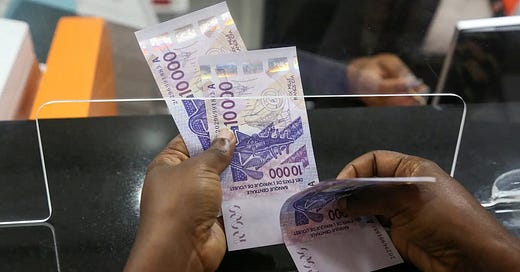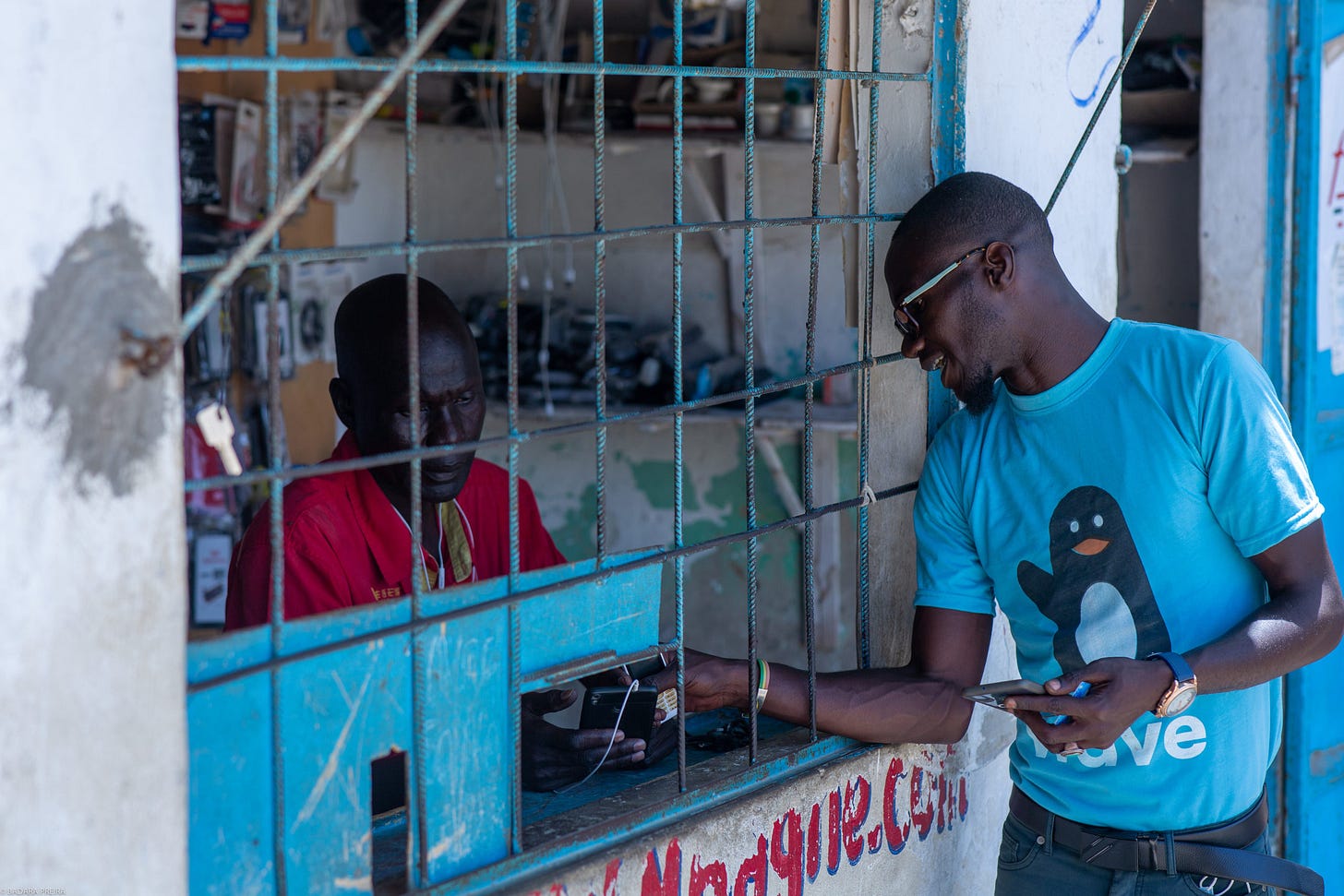Pulse54: A quiet fintech boom
Francophone Africa is quietly becoming the continent’s next fintech growth zone, as mobile-first startups, rising digital demand, and evolving regulation unlock a once-overlooked market.
Hey there👋🏽
Welcome to the latest edition of Pulse54 by Daba, your twice-weekly signal on the future of Africa.
This week, we’re diving into why francophone Africa is fast becoming the continent’s next fintech frontier.
If you were only watching Nigeria, South Africa, or Kenya, you're about to expand your lens.
👉 Subscribe to get fresh insights every week — straight to your inbox.
Before we dive into this week’s story, here’s a quick tip if you’re looking to invest in African stocks, bonds and more.
Get the Daba app now for:
✅ Multiple asset classes
✅ Multi-currency support
✅ Real-time market data
✅ Curated opportunities
✅ Expert-backed strategies
Visit daba.finance/app to get started today.
Moving on...It’s easy to overlook the French-speaking part of Africa when the fintech spotlight and capital tends to focus on Nigeria, Kenya, or South Africa.
But quietly, steadily, francophone Africa is becoming the next big thing in African fintech.
The group comprises 29 French-speaking countries.
21 of those countries are known as francophone countries, which use French as their official language or as one of their languages.
That includes most of West and Central Africa—from Senegal, Côte d’Ivoire, and Mali in the west, to Cameroon, DRC, and Chad in the center, plus North African countries like Algeria and Tunisia.
Across all, an estimated 170M Africans speak French. They make up 57% of global French speakers.
But not all francophone countries are built the same.
The core fintech action is in the WAEMU (or UEMOA in French) zone—a group of eight West African countries (Benin, Burkina Faso, Côte d’Ivoire, Guinea-Bissau, Mali, Niger, Senegal, Togo) that share a common currency (the CFA franc - XOF) and a central bank (BCEAO).
The CEMAC zone—Cameroon, Central African Republic, Chad, Republic of Congo, Equatorial Guinea, and Gabon—shares its own version of the CFA franc (XAF) and a different central bank (BEAC).
North African countries like Morocco and Algeria operate outside both frameworks entirely.
That setup looks simple. One language. Two currencies. Two central banks. But underneath, things are more complicated.
Even though WAEMU and CEMAC use the CFA franc, the two versions aren’t interchangeable.
You can’t use West African francs in Central Africa without going through currency conversion.
Add in different interpretations of central bank rules in each country, and cross-border fintech operations get tricky.
Still, the opportunity is too big to ignore.
Most people in this region don’t have traditional bank accounts.
In countries like DR Congo, Cameroon, and Senegal, formal banking penetration is below 30%.
But mobile phones? Those are everywhere. And they’ve turned SIM cards into wallets.
Services like Orange Money, Wave, and MTN MoMo allow people to send, receive, and store money through basic mobile phones.
That’s why, in many places, mobile money accounts outnumber bank accounts by more than 3 to 1.
Players like Djamo in Côte d’Ivoire have built mobile-first banking services from scratch, growing to over 1M users across Ivory Coast and Senegal.
Their app lets users open digital accounts, get debit cards, and access financial tools without ever entering a branch.
But while digital banking and payments are taking off, lending is still a missing piece.
Only 1 in 10 adults in French-speaking West Africa has access to formal credit. No credit history, no national ID, no formal job—this makes it hard for banks to lend, and risky when they do.
Now, that’s starting to change as data rewrites the rules.
Startups like Yabx analyze mobile money usage, airtime purchases, and bill payments to create new kinds of credit scores—even for users with no bank account.
It’s not about paperwork anymore. It’s about patterns.
And building on this fintech innovation wave, companies like Daba help people invest in the region's stocks and bonds markets through their smartphones.
As expected, this shift is catching the eye of investors and fintech giants.
South Africa’s Peach Payments just acquired Senegal-based PayDunya to enter the UEMOA and CEMAC regions.
VC firm TLcom Capital is backing Ivorian startup HUB2, which is building payment rails to connect mobile wallets across the region.
Even traditional banks like Ecobank are dipping their toes into fintech partnerships.
Regulators, too, are starting to evolve.
The BCEAO has issued new digital payment licenses and is considering sandboxes for fintech experiments.
There's talk of “passporting” licenses across WAEMU borders—a game-changer if implemented.
But the road isn’t smooth yet.
There’s still poor internet access in rural areas. Power cuts are common in countries like Mali and Guinea.
Many consumers prefer cash due to past fraud or just plain mistrust. Fintechs still face high compliance costs and patchy legal frameworks.
Even so, the momentum is building.
In 2021, Wave became the first unicorn out of francophone Africa after raising $200M.
Julaya is helping businesses manage payroll digitally. HUB2 is gunning to be the Stripe of the region. Djamo closed a $17M round to deepen its reach.
What’s different about this fintech wave is that it’s mobile-first, infrastructure-light, and inclusive by design.
It’s not about replacing banks—it’s about bypassing them where they’ve failed.
And the real engine? Young people.
Francophone Africa is packed with youth.
Most are unbanked but connected. They live on mobile, want simple financial tools, and don’t care about legacy systems.
That’s fertile ground for fintech.
And with the African Continental Free Trade Area (AfCFTA) and regional payment systems like PAPSS, cross-border trade and payments are starting to open up too.
Here’s the takeaway: francophone Africa isn’t behind. It’s just on a different path.
One that could leapfrog legacy models entirely.
And for investors and builders paying attention, this might just be the last untapped fintech goldmine on the continent.
That’s it for this week.
You can also download the Daba app to access vetted investment opportunities in African VC - from exciting early-stage startups to professionally managed venture funds.
Until next time!








